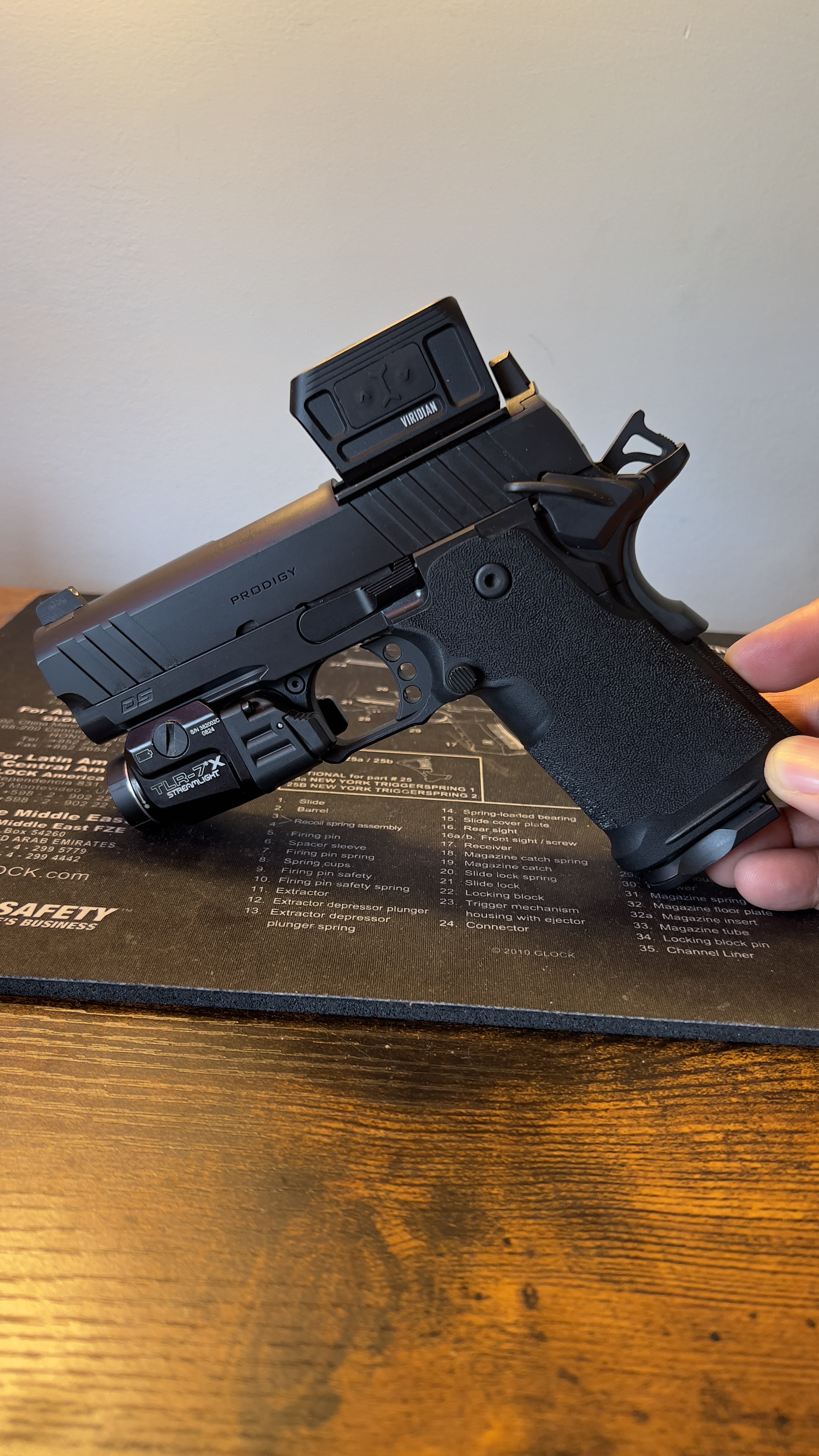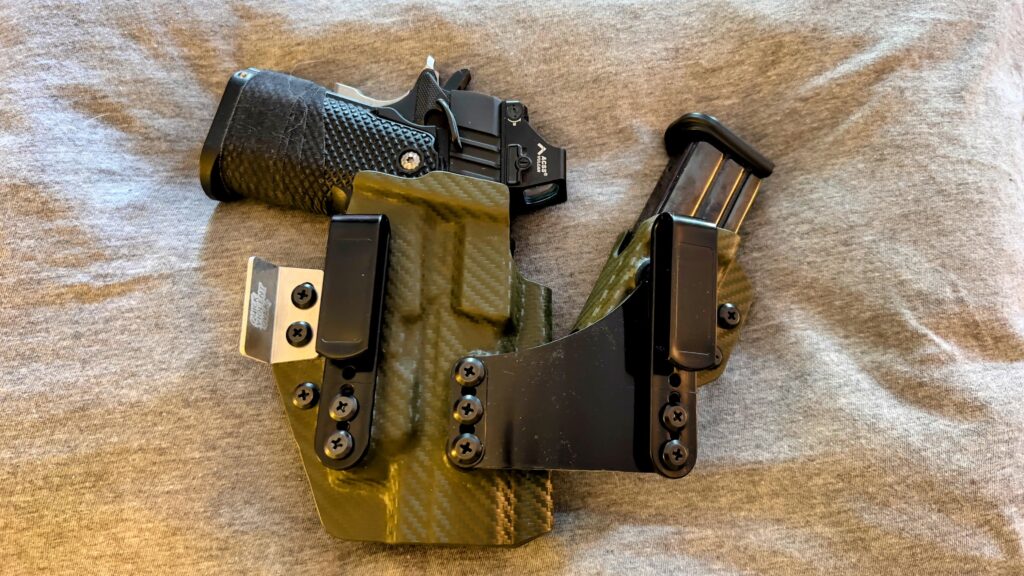Last week, I decided to take the PSA AK-P to the range, as I’ve plenty of 7.62 x 39 ammo.
I shot 30 rounds before I quit (LOL)…the gun is loud AF! Even with the 4-pc flash hider installed, it is still loud. Yeah, it’s a flash hider, but it’s also redirecting the bang down range, and I shoot indoors.
As well, the flash hider was generating sparks that I thought would be an issue, and I was waiting for the RSOs to say something. When I got home I looked at the footage and didn’t see the sparks in the footage. I also checked the flash hider to see if there were strikes within it’s internals – I didn’t see any damage.
I researched and saw that this is sometimes common and also saw video footage where many hiders/brakes generated sparks. This is probably a normal thing.
Also, after taking a shower, I was applying deodorant and and was surprised to have a bit of pain near my armpit. I looked in the mirror and there was a large bruise where I’d placed the brace of the AK-P. I may need to change the brace to something less damaging, but it could be the flash hider that’s making the pistol shoot more harshly (the hider also generate more recoil and back pressure, but so does the OEM booster that this gun came with).
A few days later, I was going to take the AK-P to the range again, but kept shuddering when thinking about shooting that gun indoors, so I switched to the AK-V.
I loaded up 4 mags of 9mm (those mags hold 35 rounds, so that was 140 rounds of Blazer 124-gr FMJ) and headed to the range.
I had fun!
I ended up having to zero the optic that was mounted on the AK-V. I thought I’d zeroed it a long time ago, but the zero was WAY off – at 25 yards, I was at the top of the man-sized target and many rounds were off-paper. The optic is a Vortex Sparc II red dot.
I zeroed at 10 yards (as I do my handguns) using the range’s bench rest and then, once I had a good zero, tested it at 25 yards. I was still shooting high, but was on the man-sized silhouette and only 2-3″ higher than where I was aiming. I may revisit the zeroing and do it at 25 yards instead – this means I’ll have to remember to aim a bit high when shooting at around 10 yards. I tested at 12 yards and was satisfied with the zero.
The 140 rounds disappeared quickly, as I expected. The only thing I don’t like about the AK-V is that the ammo goes quickly. I was shooting semi-rapidly and practiced quick pairs of rounds.
I’m at 710 rounds through the gun now. I like this gun so much, it got me thinking of purchasing the PSA Jakl (MP5-like 9mm blow-back PCC), especially since it uses AK-V mags, and I’ve maybe 10 of those. But the Jakl is like $1000 and I already have a $1000 blow-back PCC (the AK-V). If I’m going to get another PCC, it’ll be the Springfield Armory Kuna in 9mm – and the mags for that gun are cheap, at approximately $25 each. Plus, the Kuna is the same price as the Jakl, and has a better internal (roller-delayed) system.
As with most range visits, I also shoot my carry gun, so I shot two mags through the Prodigy DS Compact, which isn’t a huge deal, but I spent time zeroing the gun again, as I had problems with the optic (Viridian RFX45 closed emitter green dot) the last visit. In fact, I’d forgotten that I’d removed the optic to work on the adapter plate (doing this messed up my zero, which is what caused all my issues the last range visit). As well, the optic was loose, too. I re-tightened it, and then quickly got it zero’d again…was super easy and quick, especially with the bench rest. I had it surpremely zeroed within 15 rounds and then validated the zero at 15 yards. It was good. I’ve 300+ rounds through the gun with that optic now. The optic hasn’t died and is playing nice with the Prodigy DS.
The adapter plate that I’m using with the optic and Prodigy is the Springfield Armory Aimpoint Acro plate. When installing the optic, the optic is loose enough that it rattles. I’m not sure if it’s the optic that’s the issue or the plate. I used two layers of electrical tape on the adapter plate and then mounted the optic – the optic is now snug on the gun. It’s definitely wierd that I have to do that and I can’t place full blame (yet) on either part.
The optic is blocky and big but carries (and conceals) well. This is more of an experiment than anything else, but since I’m having no issues, I’ll continue to use it on the Prodigy DS Compact.
The DS Compact now has 1226 rounds through it.
Life is good!

